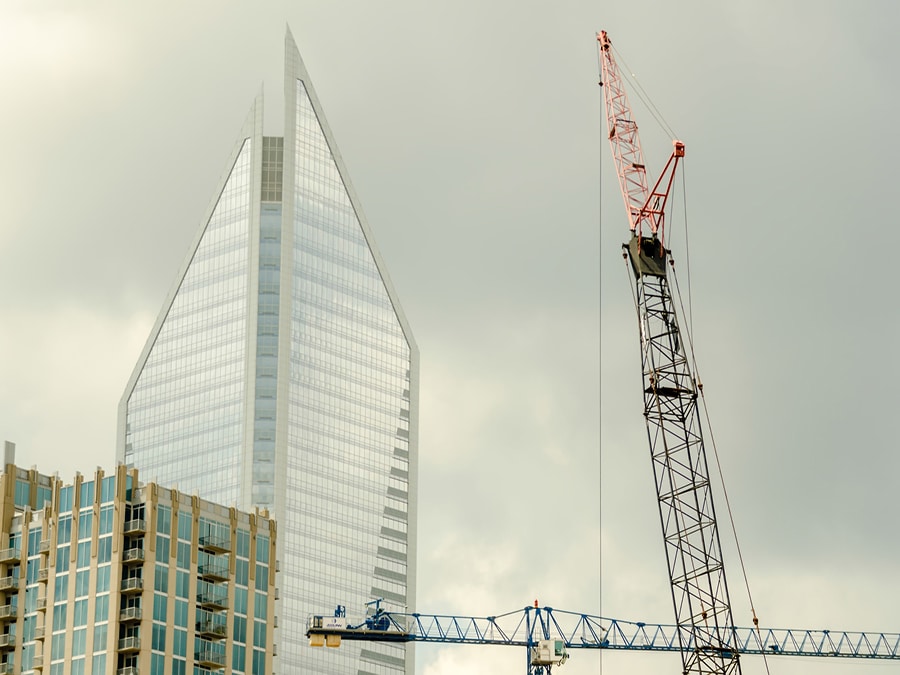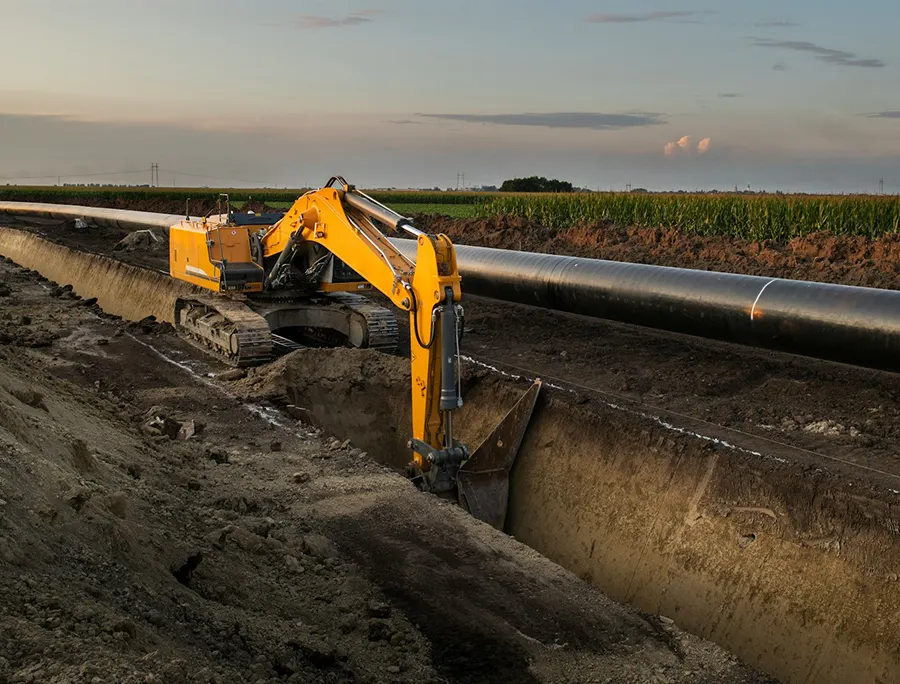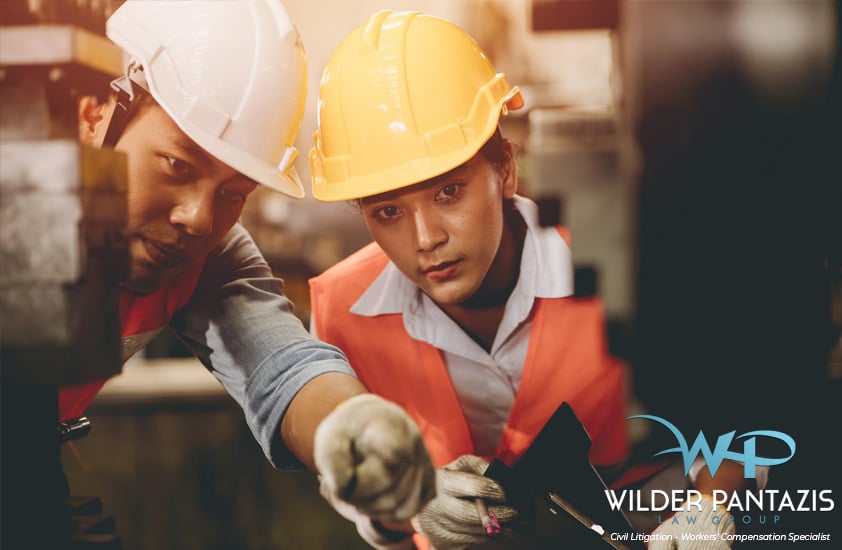Were you injured on the job at a construction site?
Approximately 11.2 million people work in the construction industry in the U.S. While the exact number of people working construction jobs in North and South Carolina is unknown, it’s clear that the local industry will experience continued growth over the coming years, especially in Charlotte, where construction is a regular part of the local economy.
Unfortunately, construction is not a safe line of work. In fact, construction work is considered one of the most dangerous jobs in the Carolinas and nationwide.
Even when the most strict safety measures are followed, construction accidents and injuries happen with shocking regularity. In fact, in 2020 alone, there were approximately 174,000 nonfatal injuries and illnesses reported in the construction industry across the U.S.
Because of these high injury rates, it’s crucial that construction workers in North or South Carolina fully understand their rights and responsibilities following a workplace accident or occupational illness diagnosis.
Common construction injuries and accidents
In order to promote safety on construction sites, it’s important to be aware of the top causes of construction accidents (and how to prevent them) as well as some common injuries that result from these accidents.
Below are the most common accidents and injuries in the construction industry.
Injuries from falls
Due to the nature of the construction environment, falls from heights are fairly common. When it comes to falls, the injuries might be attributed to heights or from trips or slips on the same level. Workers are especially susceptible to slip- or trip-and-fall injuries while working on elevated surfaces, such as rooftops or scaffolding.
Construction sites also frequently have sudden floor openings, slick surfaces and precarious support structures, so falls are common in these areas, especially when there’s an increased reliance on ladders.
Common injuries from falls include:
- Broken bones
- Muscle sprains and strains
- Joint injuries
- Degloving injuries
- Spinal cord injuries
- Hip injuries
- Head and brain injuries like concussions and traumatic brain injuries (TBIs)
Did you know?
1 in 3 deaths in the construction industry in 2020 were caused by slips, trips and falls, and more than 95 percent of these incidents involved falls from an elevated surface.
Despite falls being common, there are specific measures that can (and should) be taken to minimize these risks. To protect themselves while working on a construction site, workers should do the following:
- Install lighting to better illuminate work areas and avoid hazards.
- Use the correct safety equipment to prevent falls, including harnesses and guardrails.
- Wear proper footwear with good grip and traction.
- Keep a tidy work area and clean up any clutter.
- Follow all safety regulations (especially when using ladders).
Construction workers should also undergo all mandatory safety training per state and federal regulations and be aware of any applicable health and safety measures.
Electrocution injuries
Unfortunately, workers are commonly electrocuted at construction sites. Severe electrocution can lead to the following:
- Muscular contractions
- Nerve damage
- Cardiac arrest (heart attack)
- Severe burns
- Death
To reduce the occurrence of electrocutions on the job site, construction workers, contractors and companies should heed the following safety measures:
- De-energize equipment after use.
- Wear necessary safety equipment in the workplace at all times.
- Cover exposed wiring and keep it away from any liquids.
- Maintain a safe distance from energized machinery parts.
It’s the role of both the construction site manager and employees to ensure the workforce is safe so that no one is at risk of being electrocuted.
Strain injuries
Strain injuries usually occur because of repetitive motions that cause excessive wear on the body over time, affecting muscles, bones and joints. On construction sites, these injuries are often caused by operating power tools and heavy machinery such as jackhammers.
To prevent repetitive strain injuries, construction workers should take regular breaks. If you’re experiencing any form of discomfort, get in touch with your site supervisor and explain your concern. Then, see a doctor to talk about pain management, treatment and prevention of further injury.
Learn about your rights if you’ve been fired after an injury at work in North or South Carolina.
Injuries from fires and explosions
Flammable chemicals and combustible materials are commonly found at many construction sites. If a fire breaks out on a construction site or an explosion occurs, the consequences and injuries can be devastating.
Although fires and explosions are relatively rare, construction workers and companies must be vigilant in preventing these events, which can lead to the following serious injuries:
- Hearing loss
- Burn injuries and disfigurement
- Asphyxiation (death from lack of oxygen)
- Traumatic brain injury (TBI)
- Lung damage and diseases like occupational COPD from smoke inhalation
If you notice any potential hazards at your construction site, you should report them along with any other unsafe working conditions to your construction manager or the Occupational Safety and Health Administration (OSHA) as soon as possible to prevent injury to you and your co-workers.
Getting stuck or caught injuries
Since heavy machinery is used at construction sites, there’s always a risk of getting stuck or caught in a machine. These accidents can occur when a worker is pinned against the wall by heavy machinery or hit by a moving machine.
Injuries from getting stuck or caught in a machine can include:
- Damage to muscles, nerves and skin
- Broken bones
- Amputation (loss of limb)
- Paralysis
- Internal organ damage
- Death
To prevent these types of accidents, you should be aware of your surroundings at all times. Also, ensure you’re adhering to the safety precautions that have been put in place by your site manager.
Additionally, you can minimize your risk of getting stuck by adhering to these simple safety measures:
- Don’t rest your body against any moving machinery
- Wear gloves and avoid wearing jewelry when operating any form of machinery
Injuries from a trench collapse
Trenches are an important part of any building, whether large or small, since they’re needed when laying the foundations of buildings. If a trench collapses, the buried workers can face catastrophic injuries—if they survive at all. In some instances, the workers may also be struck by an object that leads to the collapse of the trench.
Some of the most common injuries that occur after a trench collapse include:
- Broken bones
- Brain and spinal cord injuries, including traumatic brain injury (TBI)
- Asphyxiation (death from lack of oxygen)
Fortunately, such accidents can be avoided by ensuring the trench is fully supported. If you notice any defect or deviation in standard trench safety, you should report it immediately to your site manager.
A guide to NC workers’ comp benefits after an excavation accident
Understand your right to compensation after a serious injury or fatality while working with an excavator in Charlotte.
Workers’ compensation laws
in North and South Carolina
Under workers’ compensation laws in North Carolina and South Carolina, most injured construction workers are eligible for medical treatment and wage replacement compensation while they recover from their injuries.
Workers’ compensation is a no-fault system, which means that you should receive benefits regardless of who or what caused your work-related injuries. Even if you partially contributed to your injury, you can still get workers’ compensation benefits as long as employee drug testing or other evidence doesn’t show you were under the influence of drugs or alcohol at the time of your injury.
In exchange for this no-fault system, construction workers generally cannot sue their employer for a work-related accident.
What benefits am I entitled to under workers’ comp?
As a construction worker, you may be entitled to the following workers’ compensation benefits:
- Emergency care. A construction worker should be taken to the emergency room after they’re injured at the job site. They also need ample time to recover since recovery may take a few weeks or even months. Your employer’s workers’ compensation insurance should cover these emergency medical expenses regardless of where you were treated.
- Long-term medical care. In addition to emergency care, a construction worker might need long-term therapy and treatment after a work injury. Workers’ compensation should help cover these medical expenses as long as you’re treated by an authorized medical provider.
- Lost wages. During the healing period, covered construction workers are eligible for two-thirds of their average weekly pay until they’re fully healed. However, there is a 500-week limit and a cap on the compensation provided.
- Death benefits. If a construction worker is killed in a fatal work accident, their surviving spouse, children and other dependents may be eligible for compensation for the deceased’s worker’s medical care before their passing, as well as lost future earnings and funeral/burial expenses.
Third-party injury claims are also possible in North and South Carolina, even if you’re working as a subtractor and your employer signed a waiver of subrogation. Third-party claims are when a person is injured by a person or other party at the construction site that is not their direct employer. Additional damages that may be sought in these cases include pain and suffering and punitive damages.
Contact a construction workers’ comp attorney in North or South Carolina
If you’ve suffered an injury at a construction site and were denied workers’ compensation benefits—or if the compensation being offered isn’t enough to cover your expenses from the accident—you should meet with a workers’ compensation attorney near you to better understand your rights.
At Wilder Pantazis Law Group, our experienced workers’ comp attorneys are committed to helping workers in North and South Carolina recover maximum compensation for their injuries. We offer free initial consultations, and we work on contingency—so you won’t pay a fee unless we win your case.
Lack of training: The deadly reality for North Carolina workers
Understand your rights after a work injury caused by inadequate training.




